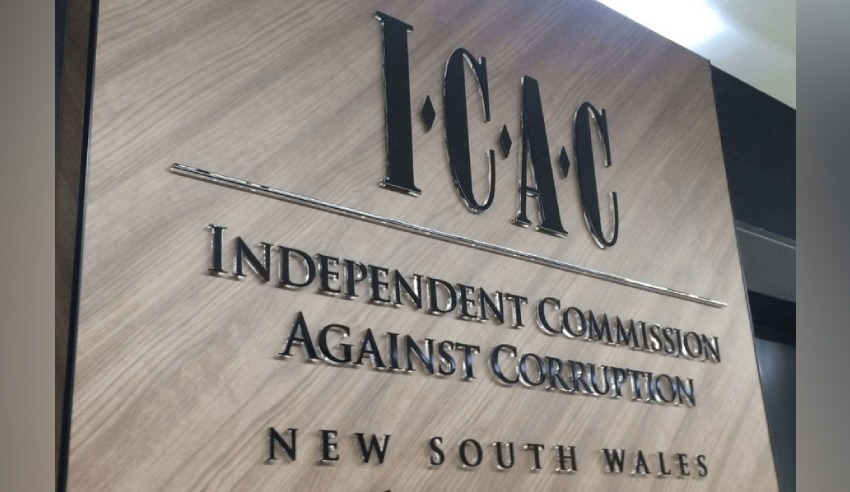A forum on the NSW Independent Commission Against Corruption was held last Friday (3 June) at the NSW State Parliament, at which participants warned that Australia had slipped down the ladder in terms of global corruption rankings.

Speakers included Professor Anne Twomey, University of Sydney; the Honourable Joseph Campbell, former judge of the NSW Court of Appeal; Dr Simon Longstaff AO, director of the Ethics Centre; NSW Deputy Auditor-General Ian Goodwin; and Professor AJ Brown, Griffith University.
Prosecutions under ICAC ended up with some politicians in prison, so they were not to be taken lightly. Professor AJ Brown suggested that any future ICAC form needed to contain civil as well as criminal provisions.
The notion of pork-barreling was defined as giving advantage to one particular political party in decision making. Some pork-barreling was noted to be useful. The investigation of decision making around the NSW floods was one example of line-drawing about pork-barreling.
The forum panellists held that there were differences between the standing of the public service, ministers, Parliament and the political party.
There was a large emphasis placed upon the liability of public servants, who are under an obligation to give advice in an impartial and ethical manner to ministers. Ultimately, it is the public interest to implement government decisions fairly and ethically. All too often, they are motivated by assumptions about what the minister wants. Unfortunately, in some aspects, records have been destroyed. Public servants are also always aware that they could be sacked for giving contrary advice.
In terms of transparency, NSW Deputy Auditor-General Ian Goodwin suggested that the activities of public servants can be tracked through e-cabinet. However, there may be obstacles to accessing information through current classification schemes.
The forum concluded that many politicians have mixed motives that are both private and public. However, the forum concluded that dividing decision making into what is known to be private or public could also be misleading.
The NSW Premier’s memorandum was one tool in which accountability could be achieved. However, the flexibility of the memorandum could lead to interference with the anti-corruption objectives. There was still the sense of uncertainty and lack of clarity given the flexibility.
The panel identified that politicians – including their advisors – could benefit from enhanced education in this field. Professor Anne Twomey essentially stated that the current Ministerial Code of Conduct was “basically useless”. The Code of Ethics did not, for example, educate ministers about their responsibilities on administrative laws. While further codification is necessary, the possibility exists for creating new, subordinate legislation.
The forum identified that the loss of trust was a key outcome of pork-barreling. The forum recommended that the public trust be honoured at all times.